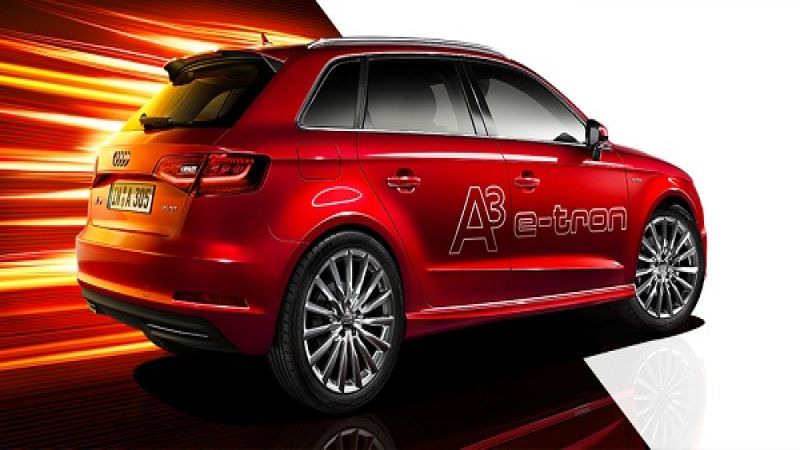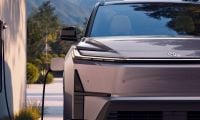Electric vehicle advocates grow weary of the “long-tailpipe” argument frequently parroted by detractors, as no amount of evidence to the contrary seems to deter the notion that gas-powered vehicles might be almost as clean as electrics. (They’re not.) In Germany, however, buyers of the new Audi A3 e-tron will be able to emphatically put the long-tailpipe “debate” to rest by eliminating their carbon footprint entirely.
This is because Audi has partnered with a large German energy company, LichtBlick SE, to bring exclusively hydro-powered electricity to A3 e-tron owners according to a Volkswagen AG press release. The electricity will come from hydro-electric power plants in Austria, Germany, and Switzerland.
The catch is that owners who want this carbon-free electricity, or “Audi energy,” delivered to their home will be charged a hefty $0.41 per kilowatt hour, plus a monthly fee of $12.30. Those are steep rates by the standards of typical American electricity at $0.10-$0.12/kWh. But if you can afford an Audi EV, chances are good you can afford to charge it with expensive electricity.
German owners of the Volkswagen e-Golf not surprisingly have the same access to green electricity, which VW calls “BluePower.” The hope is that the Volkswagen Group and others will bring a similar option to the United States, ideally at more reasonable electricity rates. For the U.S. market, Volkswagen will offer a carbon offset program and is considering an incentive program for owners to install solar power.
Though Audi has not given any indication one way or the other about carbon-neutral electricity for future American buyers of the A3 e-tron, it seems like a definite possibility. The concept of partnering with energy companies to provide low-carbon electricity to EV owners makes so much sense, as many are clearly willing to pay to lower their carbon footprint.
It will only be feasible for the time being in certain regions of the United States with a decent-sized EV market and access to renewable energy sources, especially California, the Southwest, and Texas. However, in these regions carbon-free electricity would likely cost less than the $0.41/kWh charged to German EV owners. And as the electric vehicle and renewable energy markets grow, the option for carbon-free electricity could become commonplace within the next decade.
Would you be willing to pay more for clean electricity if given the option, and how much more? Let us know your thoughts in the comments section below.
Set as google preferred source










